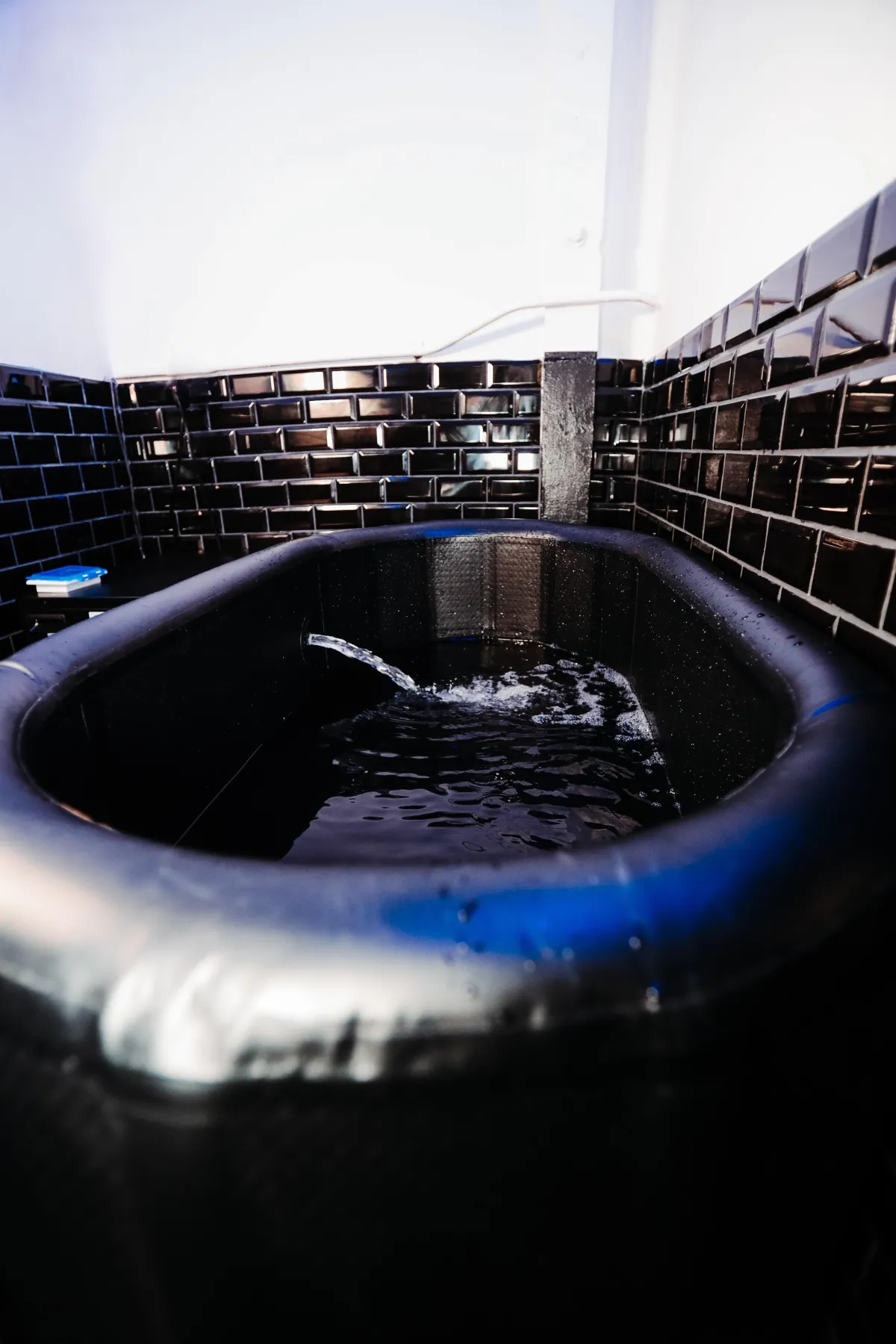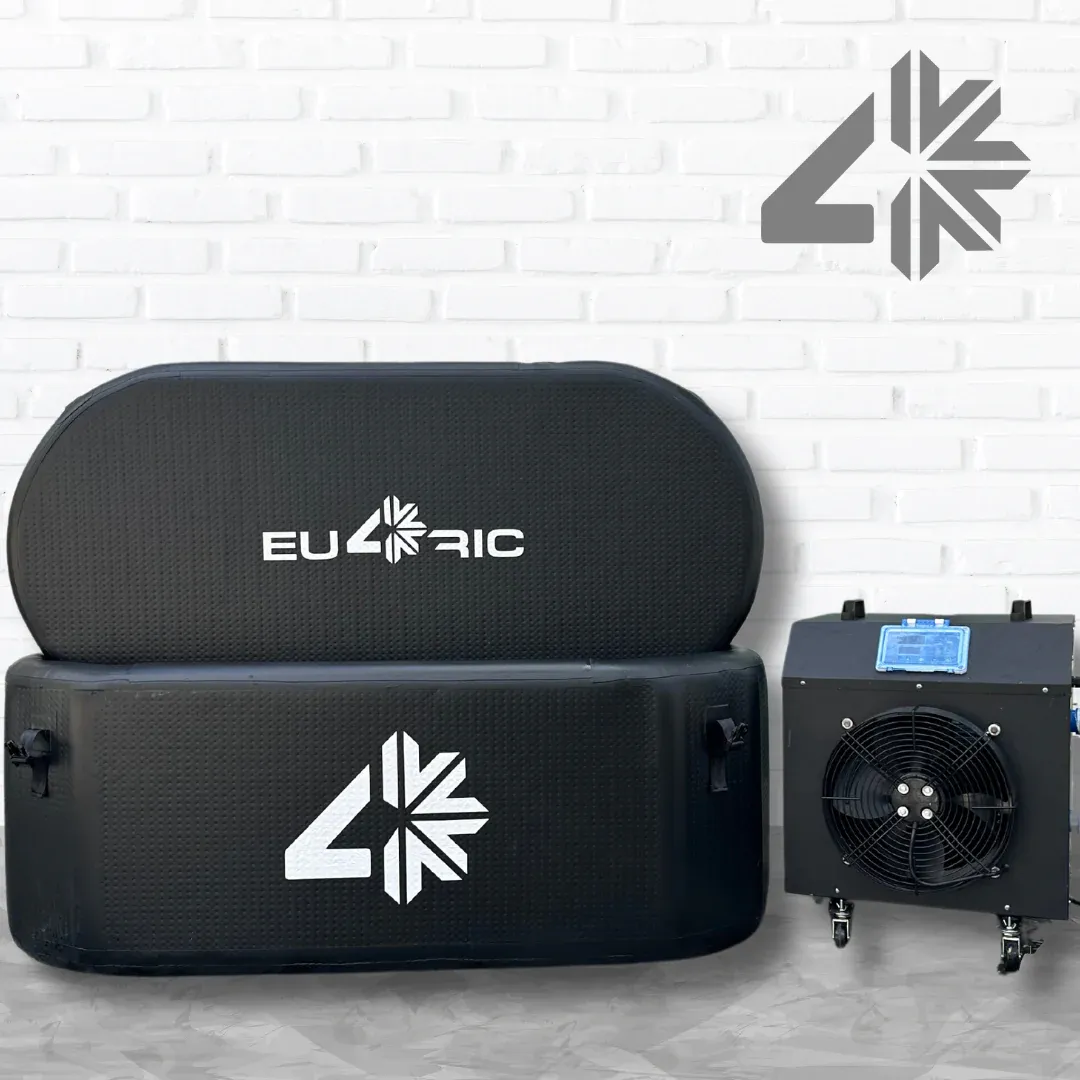INTRODUCING COLD PLUNGE THERAPY
Unlock a new dimension of well-being with our new Cold Plunge Therapy experience.
Check out the full list of benefits below and book your first session today!

TRY YOUR FIRST PLUNGE FOR ONLY $20
use code: CHILL20
BENEFITS OF COLD PLUNGING

Energy Boost
Everyone has their unique wake-up routine—some rely on double shots of espresso, others opt for a brisk workout. If you're looking for a new efficient morning jumpstart or an afternoon energy boost, consider cold plunging. Many individuals explore cold plunging as a fresh method to revitalize their daily energy levels!
Recovery/Performance
The advantages of cold plunges reach further than just impacting your mental and chemical facets. Sports medicine has long employed cold water therapy to aid in the active recovery of muscles.
Immunity Boost
Submerging yourself in cold water triggers leukocytes, the white blood cells crucial in combating illnesses. It prompts the lymphatic system to contract, facilitating fluid movement through the lymph nodes. This detoxification process fortifies the immune system. Research indicates a significant reduction in upper respiratory tract infections due to this effect.
Momentum
Cold plunging has demonstrated the capacity to elevate your base level of dopamine. Dopamine, a molecule associated with motivation in our brain and body, can be heightened through this practice. Dr. Andrew Huberman suggests that increased dopamine levels can improve our ability to focus deeply and reduce the threshold for initiating actions toward our defined objectives.
Boosted Mood
Scientists have long recognized its correlation with our daily energy levels. Specifically, substantial evidence suggests that hormonal imbalances can contribute to depression, implying that a cold plunge could potentially alleviate depression and enhance overall mood! Yet, don't solely rely on our statement—consult individuals who have experienced the benefits of plunging firsthand!
Pain Relief
The increase in norepinephrine resulting from regular cold plunges has demonstrated up to a fivefold elevation. This neurotransmitter plays a pivotal role in significantly diminishing inflammation and aiding in the management of chronic pain.


Stress Relief
Studies indicate that cold water therapy serves as a viable supplementary method for alleviating stress by decreasing the stress hormone cortisol. Research has revealed that consistent cold showers and ice baths/cold therapy contributed to a reduction in anxiety levels and an enhancement in the mood of participants.
Better Sleep
Entering the Plunge prompts activation of the autonomic nervous system, a network of vessels and nerves divided into two parts governing stress responses. As you gain control over your stress response, you're likely to notice a parallel ability to regulate relaxation and improve sleep patterns.

Frequently Asked Questions
Have a Question? We've Got the Answer!
What is a Cold Plunge?
A type of cold water therapy that involves immersing the body in chilled water for a limited amount of time.
Who should NOT take a Cold Plunge?
The cold water of ice baths causes your blood vessels to constrict, which sends more blood to your organs. If you have certain medical conditions, however, this process may put you at risk. Always speak with your doctor before trying ice baths, particularly if you have any of the following conditions:
1-Heart disease
2-High blood pressure
3-Poor circulation
4-Diabetes
5-Peripheral neuropathy
6-Poor circulation
7-Venous stasis
What do Cold Plunges actually do to your body?
It use your body’s physiological responses to cold exposure to promote health benefits.
Vasoconstriction: When immersed in cold water, the body's immediate response is to constrict blood vessels in the skin and extremities. This constriction serves two primary purposes. First, it conserves heat by reducing blood flow to areas where heat loss is most significant, namely the skin's surface. Second, it shunts blood away from peripheral tissues, minimizing potential damage from extreme cold.
Reduction in metabolic rate: Exposure to cold water can lead to a decrease in metabolic rate, primarily by slowing down enzymatic reactions. This reduction may reduce the effects of inflammation and oxidative stress, making it particularly relevant for athletes seeking to recover from strenuous exercise, muscle fatigue, and soreness.
Analgesic effect: Cold exposure triggers the release of endorphins, the body’s natural painkillers. This analgesic effect can provide relief from muscle soreness and discomfort and contribute to pain management.
Rewarming effects: After you exit your ice bath, your body will warm up again. This involves vasodilation — the opposite of vasoconstriction — in which blood vessels in the skin and extremities expand to allow increased blood flow. This phase is vital for restoring normal circulation and facilitating the delivery of oxygen and nutrients to tissues, aiding in recovery.
How long should I stay in?
Here at Elev8, our cold plunge sessions are 5 mins. We recommend staying in for as long as you can tolerate and building up your cold tolerance over time.
When is the best time to take a Cold Plunge?
Any time of the day. Some people like to start their day with a plunge and others prefer to do it after a workout.
Is it safe to Cold Plunge?
Yes, it's safe for most people. However, as with most things in life, some safety considerations will minimize potential risks during the ice bathing process. If you are concerned of your safety, please consult your doctor prior to booking your Cold Plunge experience.